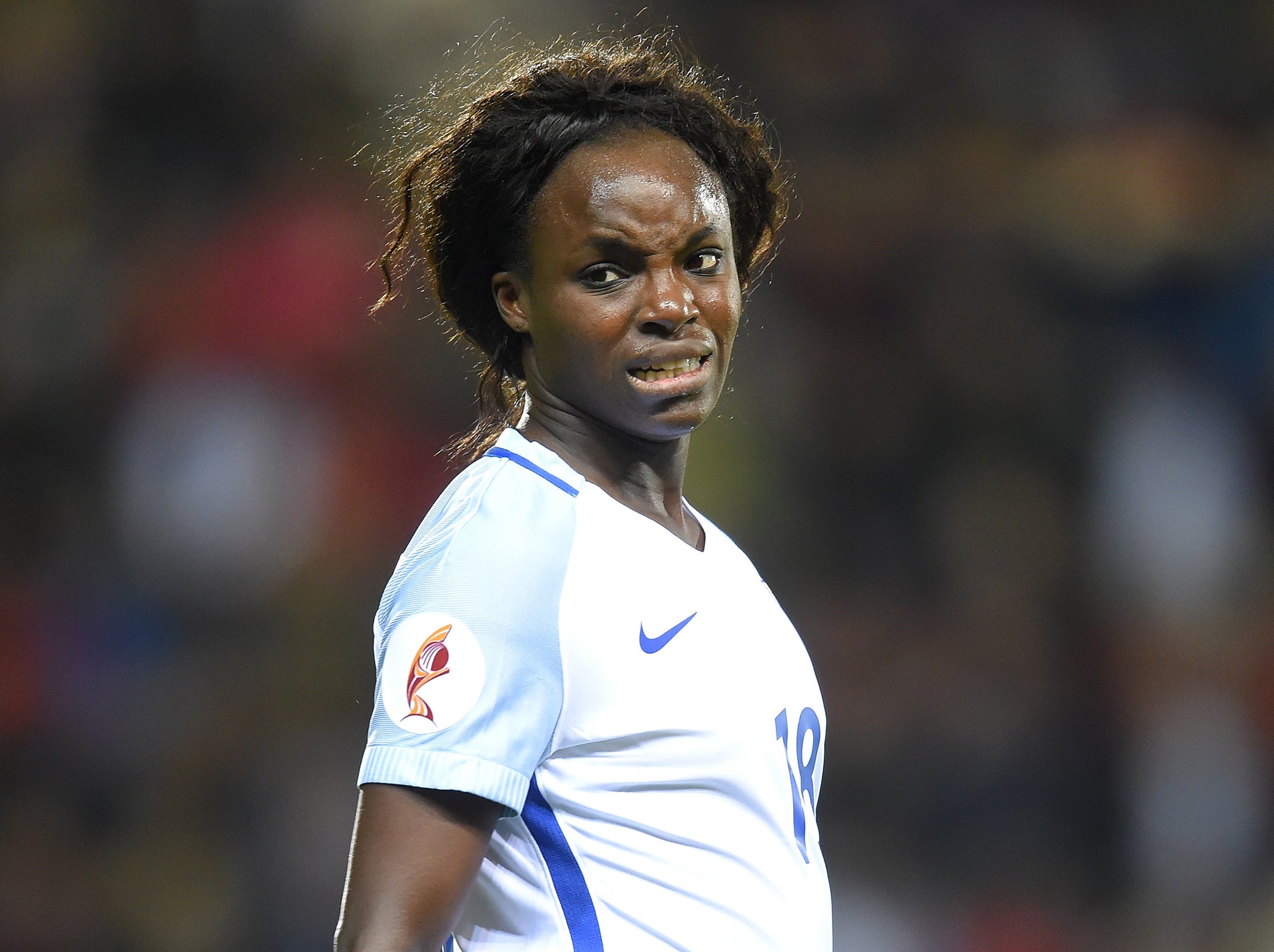Former England manager Mark Sampson did make racist comments to Eni Aluko, independent investigation finds
The FA has offered 'sincere' apologies to both Aluko and Drew Spence, concluding that the remarks by Sampson were 'not acceptable'

Your support helps us to tell the story
From reproductive rights to climate change to Big Tech, The Independent is on the ground when the story is developing. Whether it's investigating the financials of Elon Musk's pro-Trump PAC or producing our latest documentary, 'The A Word', which shines a light on the American women fighting for reproductive rights, we know how important it is to parse out the facts from the messaging.
At such a critical moment in US history, we need reporters on the ground. Your donation allows us to keep sending journalists to speak to both sides of the story.
The Independent is trusted by Americans across the entire political spectrum. And unlike many other quality news outlets, we choose not to lock Americans out of our reporting and analysis with paywalls. We believe quality journalism should be available to everyone, paid for by those who can afford it.
Your support makes all the difference.An independent investigation has concluded that Mark Sampson, the former manager of the England women’s football team, did make racially discriminatory comments to players Eni Aluko and Drew Spence.
Barrister Katharine Newton concluded that Sampson was guilty of “ill-judged attempts at humour” in telling Aluko to make sure her family did not bring the Ebola virus to Wembley, and in enquiring whether Spence had been arrested before.
The Football Association has offered “sincere” apologies to both players, concluding that the remarks by Sampson - who was sacked last month over separate allegations of “inappropriate conduct” in a previous job at Bristol Academy - were “not acceptable”. FA chief executive Martin Glenn, chairman Greg Clarke, technical director Dan Ashworth and HR director Rachel Brace are all due to be grilled by MPs on the Digital, Culture, Media and Sport Committee later today.

In her latest report, which follows two separate enquiries conducted in the last two years, Newton rejected Sampson’s suggestion that Aluko had made up the Ebola allegation out of a grudge at not being selected for the team. She concluded that Sampson had made a comment “in breach of the Equality Act 2010”, and that he “appears to have difficulty judging the appropriate boundaries when engaging in ‘banter’ with the players. However, she stated on more than one occasion that this should not be taken to mean Sampson is a racist.
In his evidence to the enquiry, Sampson said that he could not imagine ever saying “something along those lines to Eni”. He also questioned why Aluko did not make reference to the comment in her initial letter of grievance to Ashworth in May 2016, only referring to it in detail in an interview with the BBC in August this year.
Newton also found Aluko’s explanation for failing to provide details of her accusation to the FA at an earlier date “unsatisfactory”. However, her analysis of WhatsApp messages sent by Aluko to her team-mate Spence brought her to the conclusion that Aluko only came to appreciate in retrospect that the Ebola comment was racist, and that by the time of her May 2016 letter, she had forgotten about them.
Newton also concluded that Sampson did indeed ask Spence - who is mixed-race - whether she had been arrested before during a team meeting at the 2015 China Cup. Newton interviewed all six players present at the meeting, of whom three recalled a comment of that nature being made. “I do not consider that MS [Sampson] in any way intended to make DS [Spence] feel uncomfortable or upset,” Newton concludes. “However, I conclude that that was the effect of his comment.

“I consider that MS either consciously or subconsciously directed the comment at DS because of a combination of her ethnicity and her social geographical background... I conclude, therefore that MS did make the comment to DS because of her ethnicity. As a matter of law it was a racially discriminatory comment and in breach of the Equality Act 2010.”
Newton recommended that all FA employees, whatever their role or status, receive diversity and equal opportunities training “at the earliest opportunity”. In a statement, Glenn promised the FA’s full backing for the recommendations.
“On behalf of The Football Association I would like to sincerely apologise to Eniola Aluko and Drew Spence,” the statement read. “Based on new evidence submitted to independent barrister Katharine Newton, she has now found that they were both subject to discriminatory remarks made by an FA employee. This is not acceptable.
“In her final report Katharine Newton concluded that on two separate occasions Mark Sampson made ill-judged attempts at humour, which as a matter of law were discriminatory on grounds of race within the meaning of the Equality Act 2010. Katharine Newton did however conclude that Mark Sampson was not racist.
“She also concluded that there was no evidence to support the allegations that Eniola Aluko was subjected to ‘a course of bullying and discriminatory conduct’ by Mark Sampson.
“Our ambition has always been to find the truth and take swift and appropriate action if needed. It was our decision to have the original, second and final investigation to ensure that due diligence was taken. It is regrettable that Eniola did not participate in the first external investigation as this would have enabled Katharine Newton to conduct and complete her investigation sooner.
“We will fully support the recommendations from the report.
Join our commenting forum
Join thought-provoking conversations, follow other Independent readers and see their replies
Comments